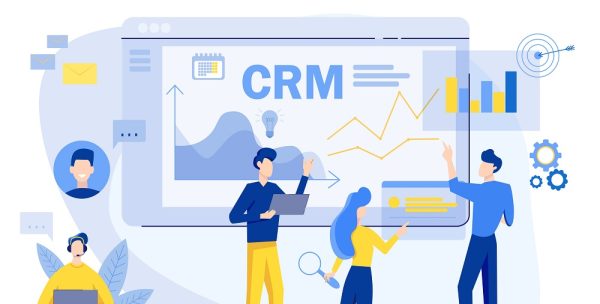CRM is Not Enough
Dealers are used to hearing that a good CRM system is all they need, and when considering spending money on anything else, “Why bother? We already do that.”
The truth is CRM systems would need to expand functionality significantly to make the case to dealers that they can do all the things a good AI-driven Marketing Automation tool can do.
This article will explain why a CRM system, no matter how good or multi-functioned, is not the same as Marketing Automation driven by Artificial Intelligence. A CRM system, no matter how capable, does not drive the same increase in brand or dealer retention, service retention, or customer value that an effective AI-driven Marketing Automation tool can provide. Further, this article will make a case for reducing the functionality (and cost) of most automotive CRM systems and focusing them only on what they do well.
As we cite the evidence proving why CRM is not enough, we will define what a good AI-driven Marketing Automation system really does.
- CRM’s don’t do real AI. As an example, most CRM systems do not track the way customers view message content or subsequent online behavior. Effective AI consumes a great volume of customer shopping behavior and transactional data in real time through predictive models, technology processes, and actual science, providing real insights that inform future communications. These insights help define the when, where, and how a message is delivered, and what the offer should be. CRM systems simply do not have access to the diverse data, nor the processing power needed to drive true AI-driven messaging or automation.
- CRM’s do not have large or flexible content management systems (CMS) for personalized messages. True AI-driven Marketing Automation delivers a high degree of smart personalization. This means that based on AI and online behavior, a marketing automation system essentially creates a personal stream of communication, tailored to each consumer. Personal means the time of the message, the media channel through which it is delivered, and most of all, the content of the message is unique. AI automatically integrates a service message into a sales offer, based on where the customer is in their purchase cycle. It also automatically varies the message delivered through email from Facebook and/or Direct Mail. This degree of personalization is beyond the scope of CRM systems. Sure, they can deliver a couple versions of a similar message, but that is not real personalization – the kind that drives better results.
- CRM data is not very predictive of past or future behavior. Over the years, virtually every company that has tried to use CRM data to make statistically solid predictions has been left disappointed. Simply, the inconsistent entry of data and manipulation of the same data leaves it almost useless for analysis. It does not predict future sales. It does not explain past sales. Also, data used to help drive compensation and/or performance reports does not enable predictions. It’s good to help see who visited (although Google has that now) and to help drive the first few contacts when a lead arrives. Beyond that, the data is essentially useless and, frankly, not worth collecting.
- CRM systems are not omni-channel or sophisticated delivery engines. While most CRM systems can deliver email, or manifest lists that can be used for Direct Mail, they do not automate the decision process on which channel will work best. Most do not deliver messages to Facebook or other social media platforms. Appending email to customer records often suppresses email delivery. In some CRM systems, personalized email (from lead follow-up) is delivered on the same system as bulk email. As recent as the last two years, a very large CRM system found itself unable to deliver email at all. How did they solve this? They bolted on to a marketing automation system to deliver their messages.
If you are tempted to use your CRM system to drive your communications, take a look at the number of decisions that need to be made to deliver just one of the hundreds of messages that need to be delivered over a single consumer’s lifecycle. Ask yourself if your CRM system makes these decisions. Ask yourself if you want your salespeople or BDC to make these decisions. Oh sure, many of them do that very well, but they do not do it as well as the science used in today’s AI-driven Marketing Automation systems that are informed by millions of transactions every single day.
With the profit in sales and service, do you want to take that risk?
A study by Outsell, Experian, and RXA looked at 960 dealerships and over 6 million sales and found that Outsell’s AI-driven Marketing Automation platform drove a 26% lift in dealer retention, a 31% lift in service visits, a 24% lift in OEM brand retention, and across 3 years, resulted in $472 more gross profit for each customer. The profit potential of better retention overwhelms anything that might be saved by using CRM for what marketing automation should do.

